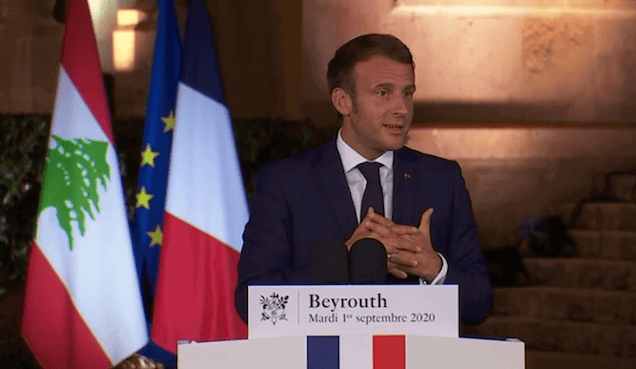|
إستماع
Getting your Trinity Audio player ready...
|
Emmanuel Macron’s approach to Lebanon has descended into a series of commercial scandals, notably involving maritime and gas concessions with CMA-CGM and TotalEnergies, alongside an unsettling alliance with Hezbollah, a U.S.-designated narcotrafficking and terrorist organization. This reckless strategy has severely undermined the centuries-old ties between France—whether as a kingdom, empire, or republic—and Lebanon and Syria.
Since the reign of King Francis I, French policy in the Levant has prioritized preferential commercial relationships and the protection of minority communities, particularly Christian Catholics and Maronites. Napoléon I’s 1798 campaign to conquer Syria began with conciliatory gestures toward the locals, but his hasty retreat after the siege of Akko marked a turning point. In 1860, Napoleon III deployed troops to stop the massacre of Christians in Damascus and Mount Lebanon, solidifying France’s protectorate status. After World War I, France established Grand Liban as a sovereign state in 1920 and retained significant influence post-independence in 1943.
French diplomacy has traditionally aligned with the prevailing political elite to serve its own interests, supporting Maronites from 1920 to 1975, Sunnis from 1995 to 2005, and Shias since 2007. The quid pro quo was clear: French businesses—banks, transport, and telecoms—received preferential treatment in exchange for backing the ruling factions. However, this time, France is negotiating with Hezbollah, a group accused since the mid-1980s of violence against civilians and military personnel, including French diplomats, military servicemen, and journalists. Unlike previous alliances, Hezbollah destabilizes the very state France helped establish, disrupting ties with Gulf Arab nations and plunging Lebanon into financial and social despair.
Following the catastrophic Beirut Port explosion in 2020, rather than reassess his position, Macron doubled down. He bolstered Hezbollah’s cause, legitimizing its representatives despite their coercive elections, and anchored his foreign policy to Iran, which manipulates him for its own ends.
By conceding gas contracts to TotalEnergies and maritime deals with CMA-CGM, Macron became an unwitting ambassador for Iran in Europe and the U.S., hoping to safeguard French interests and troops in UNIFIL while seeking favor from an outgoing U.S. administration.
The blame lies not in youth—Napoléon conquered half of Europe by 51—nor in intellect; Macron is an ENA graduate and accomplished banker. Rather, it is the hubris of combining youth with intellect that has forged his arrogant persona and gave birth to a disgraced diplomacy, a pattern evident from Ukraine to Mali and back to Brussels.
A case in point, Macron’s approval rating among French citizens has dropped to its lowest point in his seven years according to a recent survey by polling company Odoxa, Azernews reports. A mere 25% of the French population positively assesses the president’s performance, while the remaining 75% express dissatisfaction with Macron’s actions.
We leave the reader with a genius quip from Talleyrand (in its original version): “Je connais quelqu’un qui a plus d’esprit que Napoléon, que Voltaire, que tous les ministres présents et futurs: c’est l’opinion ».

